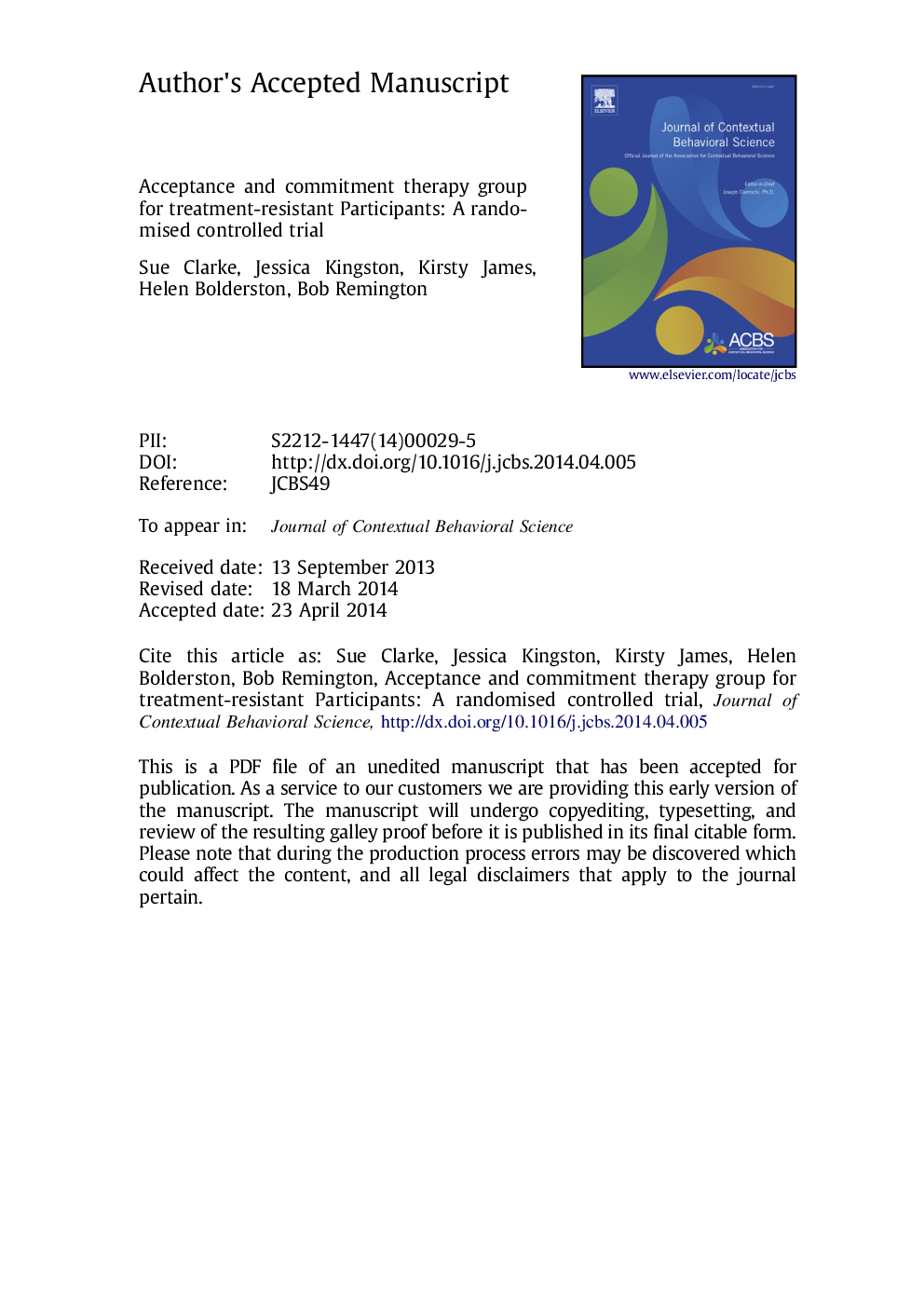| Article ID | Journal | Published Year | Pages | File Type |
|---|---|---|---|---|
| 10448656 | Journal of Contextual Behavioral Science | 2014 | 43 Pages |
Abstract
Acceptance and Commitment Therapy (ACT) is a theoretically coherent approach addressing common processes across a range of disorders. The aim of this study was to investigate the effectiveness of a group-based ACT intervention for “treatment-resistant” participants with various diagnoses, who had already completed at least one psychosocial intervention. Of 61 individuals randomized into a service-based trial comparing ACT and Treatment as Usual based on Cognitive Behavior Therapy (TAU-CBT), 45 provided data (ACT n=26; TAU-CBT n=19). Primary outcomes were measures of psychological symptoms. All participants showed reduced symptoms immediately after intervention but improvements were more completely sustained in the ACT group at 6-month follow-up. More elaborate and more fully controlled evaluations are required to confirm the findings, improve understanding of ACT processes and assess health economic benefits.
Keywords
Related Topics
Health Sciences
Medicine and Dentistry
Psychiatry and Mental Health
Authors
Sue Clarke, Jessica Kingston, Kirsty James, Helen Bolderston, Bob Remington,
